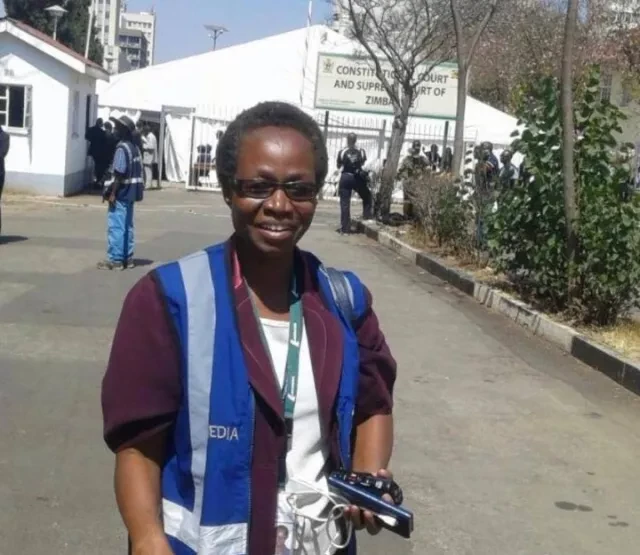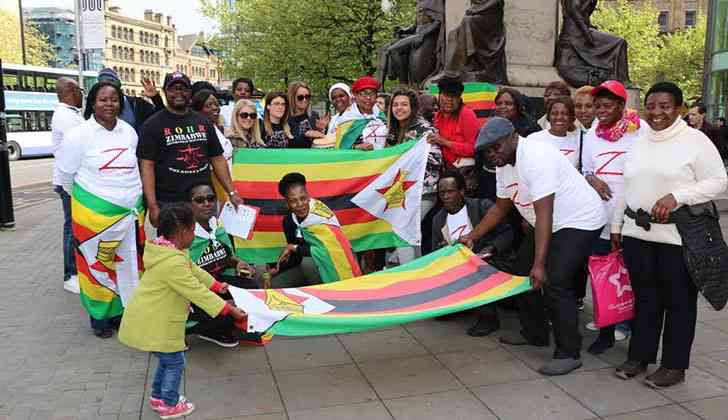
THE only weapon Lucy Yasini carried was her journalistic tools - recording devices, pen and notepad.
A picture, as the adage goes, tells a story of a thousand words. One such photographic image, widely circulated across the world as an exhibit of Zimbabwean police brutality against journalists on the front lines, is among those that define the character and persona of Lucy Yasini - a veteran broadcast journalist promoted to glory on June 18, 2024.
In the picture in question, Yasini is seen using her hands to cover her face off an airborne baton stick, police officers' weapon of choice when applying what those in the security service prefer to call “minimum force”. Only that - as the picture shows, this was brutal force and definitely disproportionate to an unarmed civilian.
The only weapons Yasini carried were her journalistic tools - recording devices, pen and notepad. Weapons not to cause harm. But to tell society and indeed the world of their stories, whether good, bad or ugly.
Being a broadcaster, with a career spanning over three decades in services across local and international media - she would package the voices of both the powerful and the weak, the governors and the governed for them to have a platform to drive their message home.
A multilingual journalist, with great command of the main languages used in broadcasting in Zimbabwe, Yasini's vocation was simply to mirror the realities of society. Even when society is broken.
Confronting power in all its manifestations comes with a fair share of risks. Particularly when you are holding power accountable.
Image matters most to any right-thinking human being. Worse one that wields the levers of power and seeks to manufacture consent.
- Act on Pandora Papers expose
- Pandora Papers: Top Mnangagwa official exposed in biggest leak
- Act on Pandora Papers expose
- Pandora Papers: Top Mnangagwa official exposed in biggest leak
Keep Reading
The stories they want told are those that positively portray their exercise of power and if they are to have it their way only news and information that praises them should be the ones dominating the public sphere.
Depicting anything outside of the preferred narrative can get you beaten, arrested and in worst case scenarios killed.
Yet this is the price journalists in the mould of Sis Lucy, as I would affectionately call her, was prepared to pay. The conviction emanates from the belief that journalism is never criminal.
In any event, journalists despite the risks are rarely the subjects. They are not in the business of news to write or broadcast about themselves.
And this is a point Yasini often emphasised at various journalistic professional platforms for engagement, solidarity and networking. Her plea in those engagements with the police, government officials and politicians was for them to always appreciate the role of journalists and the media.
In narrating her various brushes with the law enforcement agencies, Sis Lucy would often tell of how she never would plan to cover skirmishes between police and citizens.
Those are not your diary type or developing type of stories. Especially for a country that is not at war.
But when they happen, journalists are obliged to share the stories with the world without fear or favor.
The onus, as Sis Lucy would argue, is on the law enforcement agencies to protect journalists in the event of public disorder situations. Targeting or harassing journalists only makes matters worse.
Yet for all her ordeals, she never abandoned the profession. If anything, she would go on to mentor the younger generation and encourage them to soldier on in the wake of this unsafe working environment.
She was a voice of reason. Female journalists had a trustworthy sister they could confide in, including on sensitive matters such as sexual harassment. Yasini was never scared to speak out of the challenges journalists are encountering and though soft spoken her words would hit hard on the right chords.
I last bumped into her in the company of her son at one of Harare's upmarket shopping centres a few weeks ago. We jokingly advised her son not to consider joining us in journalism if he were to frequently enjoy dining at such places.
The profound sense of that joke was how the ultimate reason to continue serving in journalism spaces is never to make a fortune.
But to diligently serve the public in a way that informs, educates and entertains.
Yasini did just that.
Painful as it was, she became a symbol of journalistic resistance.
It is only your body that has rested Sis Lucy. Your voice and inspiration for the cause of journalism will forever live!
- Nigel Nyamutumbu serves as the Coordinator of a network of nine journalistic professional associations and media support organisations, the Media Alliance of Zimbabwe. He can be contacted on +263 772 501 557 or [email protected].










